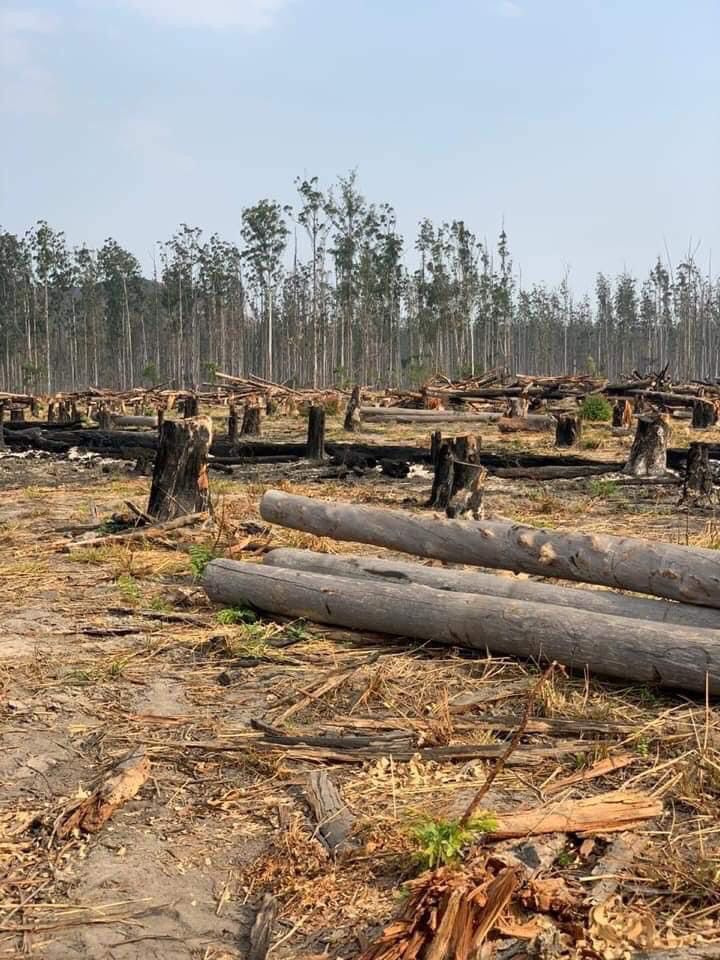The Independent's journalism is supported by our readers. When you purchase through links on our site, we may earn commission.
Unsustainable eucalyptus logging in Angola’s Benguela region
Locals say close to one hundred trees are cut down every day

Your support helps us to tell the story
From reproductive rights to climate change to Big Tech, The Independent is on the ground when the story is developing. Whether it's investigating the financials of Elon Musk's pro-Trump PAC or producing our latest documentary, 'The A Word', which shines a light on the American women fighting for reproductive rights, we know how important it is to parse out the facts from the messaging.
At such a critical moment in US history, we need reporters on the ground. Your donation allows us to keep sending journalists to speak to both sides of the story.
The Independent is trusted by Americans across the entire political spectrum. And unlike many other quality news outlets, we choose not to lock Americans out of our reporting and analysis with paywalls. We believe quality journalism should be available to everyone, paid for by those who can afford it.
Your support makes all the difference.By Pedro Tchindele for Radio Ecclesia
The Alto Catumbela Forestry Centre in Angola’s Benguela region is losing its vegetation cover, a consequence of the constant felling of trees for commercial logging purposes that are not replaced. Failing to plant seedlings in areas where trees have been felled, and demand for wood on the black market, are making the deforestation worse. These developments in recent years have raised concern among environmentalists, community leaders and the public administration. Data points to a devastation of more than a square kilometre a month. For now, the consequences are visible, with eucalyptus being the most felled tree species.
According to data from the community soba (leader), on average 100 trees are felled a day.
Speaking to the press at the end of the Council of Ministers, António de Assis defended that, like other countries around the world, Angola must also exploit its forests - rationally - to feed into industry, create jobs for youth and income for families.
Pedro Tchindele visited the forestry centre and spoke to community leaders and conservationists about the situation. Listen to his full broadcast, in Portuguese, here:
This article is reproduced here as part of the African Conservation Journalism Programme, funded in Angola, Botswana, Mozambique, and Zimbabwe by USAID’s VukaNow: Activity. Implemented by the international conservation organization Space for Giants, it aims to expand the reach of conservation and environmental journalism in Africa, and bring more African voices into the international conservation debate. Written articles from the Mozambican and Angolan cohorts are translated from Portuguese. Broadcast stories remain in the original language.
Join our commenting forum
Join thought-provoking conversations, follow other Independent readers and see their replies
Comments